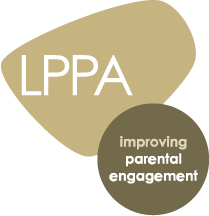When working with parents, is there any difference between being a headteacher in the UK and headteacher abroad? Chris Fenton describes his experience.

I fought in a playground once.
Not uncommon I suppose, but more so when I reveal that I was a headteacher at the time. I may be exaggerating a little when I use the word fought; I was more the referee between two mothers who had come to pick up their children and decided to continue a previous argument.
I remember standing in between them, looking at the other parents and frightened children staring on in disbelief as these two Manchester mums continued to try and knock seven bells out of each other with me stood between them trying to calm the situation down.
No teaching degree in the world can prepare you for a situation like that.
Fast forward 14 years and I’m an international head happily working in an enormous primary department in the Kingdom of Bahrain when I get a call to say that two parents are fighting in the playground. I got there to see two mums screaming at each other.
When I tried to settle things down using my limited Arabic, and stood in between them, one of the contenders took it upon themselves to spit on me and the other parent and then storm off. Lovely.
It was at this point that things started to get really messy. Enraged, the mum who’d been spat on began to charge at the spitter. Once again I found myself in between two warring mothers surrounded by other parents and frightened children, so, like before, my natural instinct was to prevent one from reaching the other and making the situation worse.
To anybody arriving at the scene this may have been an amusing site, a little like Strictly meets Dodgeball
Being bound by Middle Eastern cultural boundaries however, this wasn’t easy. I couldn’t make any physical contact, so I stood in front of her and every time she moved, I moved in the same direction.
To anybody arriving at the scene this may have been an amusing site, a little like Strictly meets Dodgeball, but it was deadly serious. Eventually, the mum grew tired of the charade, picked up her child and left.
However, this was not the end of the matter. I thought I’d handled the situation quite well. I’d prevented a fight and avoided breaking any cultural taboos, but when I arrived in the morning, the principal called asking me to join him at the police station because my dancing partner had made a complaint against me.
I can honestly say that at that moment I thought that I’d never see my family again. My principal on the other hand thought it was hysterical. Firstly, because he’d seen the CCTV footage of my psychotic Morris dance, but secondly because as a Bahraini he knew that this level of reaction wasn’t uncommon and that it would come to nothing. It did.
The investigating officer explained that the parent had gone straight to the police station from school to make the complaint and that their job was to listen to everything said and then make their decision, which they had done by giving the spitter a police caution and instilling in me the fear of God.
The point of making these comparisons is that I wanted to highlight the differences between being a headteacher in the UK and being a headteacher in a foreign country, but as I started to write it, it became more obvious that the differences are few.
Yes, there are certain cultural considerations in the Middle East, such as not offering to shake a woman’s hand or that it isn’t uncommon for headteachers to be regular visitors to the police station.
However, it’s easy to seek advice from new colleagues about these things before starting and also to ensure that you have a ‘go to’ teacher translator to avoid communication issues before they arise.
Cultural and language differences are to be expected but are easily surmountable. What’s important is to remember that in the end parents are parents and children are children.
Cultural and language differences are to be expected but are easily surmountable
Like the police officer, it’s my job to listen to problems and make decisions be it in the UK, the Middle East or anywhere. Parents sometimes have very legitimate complaints but at other times they just want someone to discuss their problems and concerns with. When they do, the last thing they need is to be faced with judgement or shame; they need a supportive ear.
When they have talked the situation through, sometimes there is nothing else to say, but be it in Manchester or Manama often just the listening is important.
When the spitting situation had calmed down, I took time to speak to both parties concerned. The whole thing started with something very trivial; one child had splashed water on the other in the toilets, but like the situation in Manchester 14 years earlier, outside influences had affected the decision making processes of both parents.
As a headteacher it is difficult to know everything that takes place in the outside community, but is a good idea to keep channels of two-way communication open.
Forewarned can mean forearmed, and stressful situations in school can be avoided with careful planning. If I had listened to the communities and known that either of the sets of parents were likely to brawl then I would have made separate pick up arrangements, avoided confrontation and kept a certain amount of dignity at the very least.
 Accrediting partnerships
Accrediting partnershipsThe Leading Parent Partnership Award gives schools a coherent framework to deliver effective parental engagement from early years to post-16.
To find out more, visit the AwardPlace website.